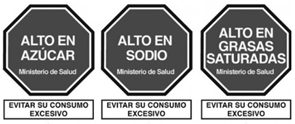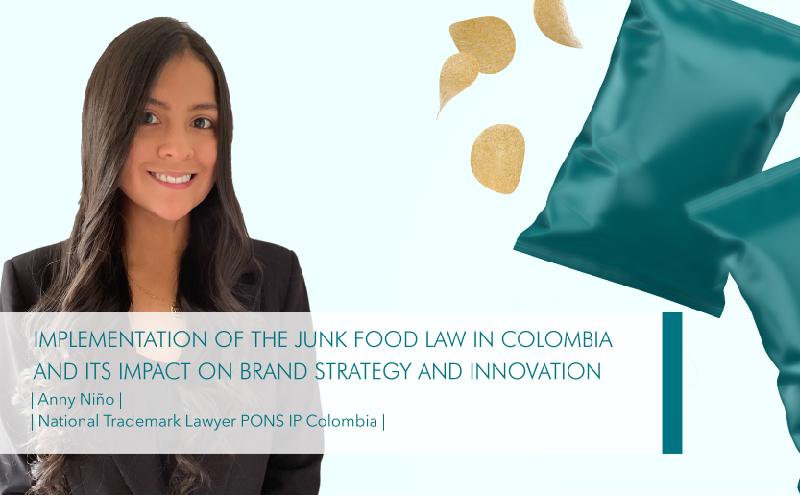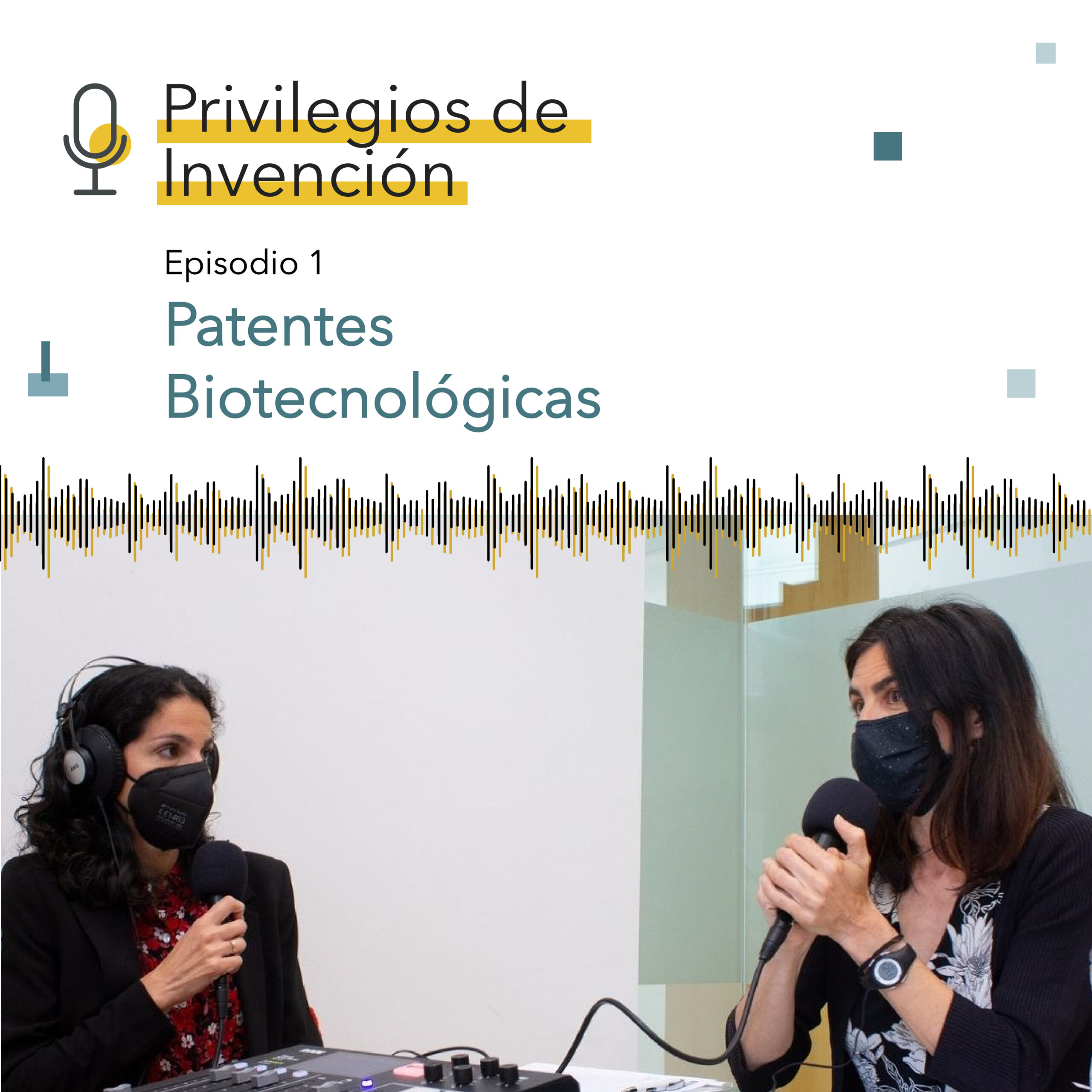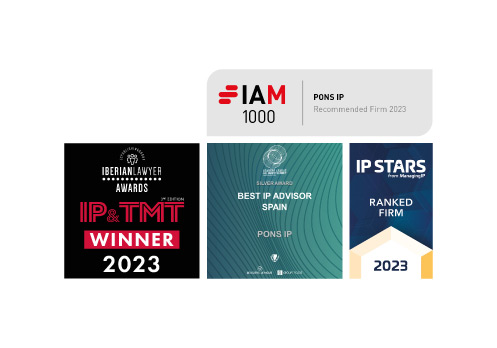On July 30, 2021, the President of the Republic of Colombia ratified Law 2120 of 2021 ‘Whereby measures are adopted to promote healthy food environments and prevent non-communicable diseases and other provisions are adopted,‘ commonly known as the Junk Food Law, as its purpose is to promote healthy food environments in the country. The purpose of this law is to provide consumers with clear, truthful and timely information on the components of the product they intend to purchase, so that they can make a conscious decision, in order to prevent the appearance of non-communicable or chronic diseases.
To this end, a series of measures to be implemented by the national government and the manufacturers of ‘ultra-processed’ edible or drinkable products (among other players) were adopted. One of these measures consists of implementing front labeling — warning labels on the product packaging with texts warning consumers about the excessive content of nutrients harmful to their health. The Law follows the trend on warning labels set by other countries, such as Peru, where products with high contents of harmful nutrients carry labels such as the following:

Of course, its promulgation brought criticism and controversy in the business sector, since this type of measures generate great impacts on brands and their consumers, both positive and negative.
From our point of view, including a warning label on the packaging of a product indicating that the product from brand ‘x’ contains high levels of saturated fats, sodium, sugars, among other components, and that it could harm the consumer’s health if consumed in excess, could constitute, in principle, damage to the reputation of the brand.
This is so because the consumer would be aware of the negative consequences of consuming the product from brand ‘x’, and would thus associate this brand and its product as harmful to their health. As a consequence, the reputation of the brand would be damaged and the consumption of its product would decrease.
For example, when the Law on Nutritional Composition of Food and its Advertising was implemented in mid-2016 in Chile, there was a 25% reduction in the consumption of sugary drinks and juices labeled ‘High in‘ . The reduction in the consumption of these foods inevitably affected brands, both in terms of sales volume and reputation, since consumers, upon learning of the high levels of certain components in the products, decided not to purchase them.
From a behavioral economics point of view, this is an expected consequence of the measures adopted, since consumers need nudges such as this type of law to help them make rational decisions such as avoiding the repeated consumption of products that have negative long-term consequences, as they contain a high amount of ingredients that can be harmful to their health.
Otherwise, consumers would not be able to determine for themselves the risks associated with the repeated consumption of this type of products and avoid abusing them. Especially, if we take into account that these products (edible or drinkable ‘ultra-processed’ products) and their advertising are often aimed at children, who consume sweets, sodas, chocolates, and are less capable of internalizing these risks.
Therefore, although warning labels on a product’s label may have a negative impact on the reputation of brands, it is a necessary measure to raise awareness or encourage consumers to make decisions that may have less harmful effects on their health.
However, the application of this type of law still leaves many concerns for both the manufacturers of ‘ultra-processed’ edible or drinkable products and the authorities, which will probably be solved once it is regulated.
For the time being, it is noteworthy that in Article 7 of this Law, when referring to the role of the Communications Regulation Commission (CRC), regarding the authorization of content for the promotion of healthy lifestyle habits and nutritional value by the Ministry of Health and Social Protection, paragraph 1 states that, ‘In every advertising space related to healthy environments, advertisers shall include a visible or audible line that provides truthful and unbiased information aimed at children and adolescents.’
Although there could be some discussion within the business sector on the subject responsible for compliance with this provision, the truth is that this standard seems to indicate that it is entrepreneurs who must ensure compliance, including in their internal processes the corresponding reforms in their advertising when it is made in spaces related to healthy environments, as well as maintaining a synergy in the interaction of the legal and marketing departments so that this aspect is addressed jointly and in a coordinated manner. Achieving this internally in the companies will allow to have certainty that the changes were implemented and thus avoid the sanctions in terms of advertising referred to in Article 11 of the Junk Food Law3.
On the other hand, the referred paragraph is not clear for entrepreneurs producing edible or drinkable products, since it does not specify what type of truthful and unbiased information aimed at children should be included in advertising spaces related to healthy environments, while according to the provisions of the Consumer Statute4, this type of information is already a duty of advertisers (producers and suppliers).
It would seem then that this provision requires producers to inform in their brand advertising (visibly or audibly) that their products contain high levels of sugars, sodium, saturated fats, among other harmful components that may cause health problems for consumers, if consumed repeatedly. However, as mentioned above, these are concerns that have yet to be solved.
For the time being, it seems that the implementation of this law will generate a positive change in the competitive dynamics of manufacturers of edible or drinkable products, as they will now direct their research and development efforts and resources to reduce the excess of harmful components in their products and, to the extent possible, create products that do not require warning labels.
For example, according to a study conducted in Chile, after the implementation of the Labeling Law ‘the food industry positively changed its discourses regarding regulation, improved the quality of the food, mainly decreasing their sugar and sodium content and used a portfolio of healthier products as a promotional strategy for its products’5
This means that brands that offer healthy products will now be more attractive to consumers and in greater demand than those that are not, using the lack of labels on their products to promote themselves as the best option for consumers or, at least, the least harmful to their health.
The new challenge for manufacturers of edible and drinkable products is to come up with more nutritious, health-friendly products that reduce as much as possible the high levels of those harmful ingredients that could cause the onset of non-communicable or chronic diseases in consumers.
Likewise, innovation, brand architecture and the implementation of management processes aimed at complying with the new law now have to be an objective in food companies, and intellectual property will always ensure the competitiveness of these products in the market.
Finally, companies will have to formulate innovation policies and brand strategy that adapt to the new circumstances. These legal requirements are an opportunity to innovate towards products that solve this need to improve the production of healthier foods. Innovation opens the way for RDI to generate new patents, protection of trade secrets and know-how that will increase the equity of these companies, making them more attractive and profitable.
1https://www.cnnchile.com/pais/peru-sellos-alto-en-etiquetado-alimentos_20190222/
2 Change in product composition and purchasing habits: the effects of the Labeling Law. URL. https://www.uchile.cl/noticias/154960/cambio-en-la-composicion-de-productos-y-en-los-habitos-de-compra
URL. https://www.uchile.cl/noticias/154960/cambio-en-la-composicion-de-productos-y-en-los-habitos-de-compra
3 Law 2120 of 2022. Article 11: The National Institute for Drug and Food Surveillance (Invima) shall sanction any person who violates the provisions of this law regarding the implementation of labeling and health warnings. The Superintendence of Industry and Commerce shall impose sanctions for non-compliance in advertising and violations of consumer rights in cases where there is no special regulation.
PARAGRAPH. The sanctioning regime, relevant authorities and procedure shall be applicable based on the regulations that confer sanctioning powers to the entities mentioned in the preceding article, and the provisions of this regulation.
4 Article 23. Minimum information and responsibility. Law 1480 of 2011.
5 Impact of the Chilean labeling law on the food production sector. Page 77. chrome-extension://efaidnbmnnnibpcajpcglclefindmkaj/https://www.fao.org/3/cb3298es/cb3298es.pdf
https://www.fao.org/3/cb3298es/cb3298es.pdf




